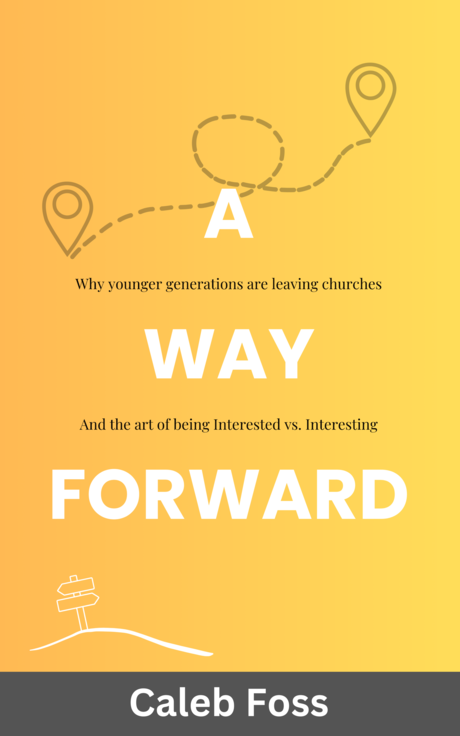In the 21st century, the concept of a third space — a place between work and home where people build community and foster connections — is increasingly elusive, with nearly 50% of Americans reportedly feeling alone.1
Historically, the church served as a cornerstone of third spaces and fulfilled an important role in community building. But as people step away from religious settings, a need for determining a new third space has presented itself.
These trends highlight the need for the church to rethink the typical forms of ministry and engage in meaningful social and spiritual interactions outside the third spaces generally accepted as part of the Adventist norm.
As we minister to people outside our normal circles of life, it is crucial to first understand our identity and value in Christ so we can see each person we encounter as a cherished child of God.
This perspective enables us to shift our focus from being interesting to being interested, allowing us to authentically listen and minister in unique ways.
As you read these stories about Northwest third spaces of ministry, ask yourself, “What third space in my life is God calling me to minister in?”
After my first year of college, some friends and I decided to go on an adventure. We spent the week in Florida learning to surf, eating fast food and sleeping in a nearby field.
When the weekend arrived, we decided to perform a social experiment, which involved attending one of the local churches and seeing how they responded to our shaggy crew. None of us had brought any church attire, and we arrived with matted hair, T-shirts, board shorts and flip-flops.
The service was already underway, and the greeters were gone when we walked in the front door. Upon opening the next set of double doors, we found ourselves standing in the center aisle at the back of a crowded sanctuary. The room was filled with gray hair, fancy dresses and three-piece suits.
As it happened, our entry coincided with the end of opening prayer. As if on cue, every head turned to look, and then gawk, at the newcomers at the back of the room. The only empty seats were in the front row, and we gleefully, in the name of science, walked down and planted our board-shorts-covered behinds right in front of the pastor.
During the service, it was hard to tell exactly what the response behind us was without being too conspicuous, so we had to wait until the end to truly assess our impact on the local congregation.
Small groups of dignified men and women huddled together, casting occasional glances in our direction as we stood in the lobby.
Eventually, a group sent a couple of emissaries to engage us in awkward conversation. Once they found out we were on a surf trip, they found what seemed to be the one youngish person in attendance who had some surfing experience to pass us off to. We stuck around until most of the members had cleared out before the pastor took pity on us and invited us home for lunch.
Have you ever wondered why making new connections is so difficult? Why is it that when new people walk into a church environment, most of us avoid interacting or even making eye contact with them? And why is this especially true if they are young or look different from us?
We know we should be welcoming to people who walk through our church’s doors. Pastors regularly preach sermons about the importance of reaching out to the people around us.
A study by Lifeway Research2 found that 66% of young adults stopped attending church regularly after graduating high school. The primary reason wasn’t a difference in theology, worship style or culture; it was a lack of relational connection.
The church had never connected with them in a way that made them miss it when anything else came along. What keeps us from reaching out?
I think many of us are afraid to make new connections with younger — and honestly all — generations because we struggle with our own sense of identity and value.
Most of us base our identity on what we believe are our valuable traits. Work, recreation, appearance, organizational skills, leadership, money, wisdom, influence, righteousness, self-discipline, etc. all are sources of value. Yours may not be on this list, but all of us have areas where we are tempted to find our self-worth.
The problem is all of these attributes will eventually let us down. Athletics and looks fade. Influence diminishes. People retire or are fired.
If our identity is based on these assets, we will eventually be let down. This leads to depression, midlife crisis, loneliness, loss of purpose and more. It also causes us to judge others based on the same criteria.
Biblically, we're reminded that our identity is based in Christ. 1 John 3:1 says, “The Father has loved us so much that we are called children of God. And we really are His children.”
Our identity isn’t in our earthly works or what we deem valuable. Our identity is that we are all children of God.
Furthermore, the gospel tells us that our value doesn’t come from anything we produce — see Eph. 2:8–9. Instead, we are valuable simply because God says we are.
Think about it. The most powerful being in the entire universe chose to become one of us and suffer simply for the chance to establish a friendship with you.
It is ludicrous if you take the time to actually process the concept. This isn’t something you earned. Your good works and positive characteristics did nothing to make you more worthy. Instead, they are simply the things people do and have when they've truly experienced grace in their lives.
Conversely, the bad things you've done don’t make you any less valuable to God. You are an important part of God’s family. Even if you decide to opt out, you are still loved and God waits for your return with open arms. See the story of the Prodigal Son in Luke 15:11–32 for a key example.
The beautiful part about understanding where our value comes from is that we don’t have to spend our lives trying to prove our worth to others. Instead, we can focus on helping others understand their identity in Christ and how valuable they are. We don’t have to prove we are awesome so others will listen to us talk about Jesus.
This is what 2 Cor. 5:17 refers to when it says we are a “new creation.” Now that we know every person on this earth is a child of God and we are all valuable because He simply says we are, we can see people the way that God sees people. They are incredibly valuable, and the best way to show someone they are valuable is to listen to their story.
Everyone is looking for a safe place to be known for who they really are and valued. There are very few places in this world where that can be found.
So where do we start? First, we immerse ourselves in the good news of God’s love every day.
Instead of focusing on producing more, focus on experiencing the love and grace Jesus offers so fully in your life that it naturally flows out of you. Allow God to teach you how valuable you are so you can better recognize the value of the people around you.
Take time to learn their story instead of telling yours. Ask questions. Focus on being interested instead of interesting. Invite others to do the same.
Through listening, we will become a meaningful part of someone’s journey and earn the right to be a voice of truth in their life. When we do, our communities and churches will never be the same.
Reflection Questions
- Have you ever felt alone or unseen, whether within your faith community or one you were visiting? What emotions did that produce? What did you do to deal with the situation?
- In what ways do you seek to make yourself valuable to others? Have any of these ever let you down?
- What are some steps you can take to spread the gospel of grace you have been given to the people around you?
Caleb Foss is the author of A Way Forward, a book focused on helping Christians better understand their own identity and build meaningful connections across generational divides. Foss also serves as Camp MiVoden director of programming and staff mentorship.
Sources:
[1] The Week Staff. “An Epidemic of Loneliness.” theweek, January 6, 2019. theweek.com/articles/815518/epidemic-loneliness.
[2] Earls, Aaron. “Most Teenagers Drop Out of Church When They Become Young Adults,” Lifeway Research, Lifeway, 2019.

When you fully understand your identity in Christ, you have new opportunities to practice the art of being interested vs. interesting while engaging with various generations and finding "A Way Forward."

Caleb Foss








